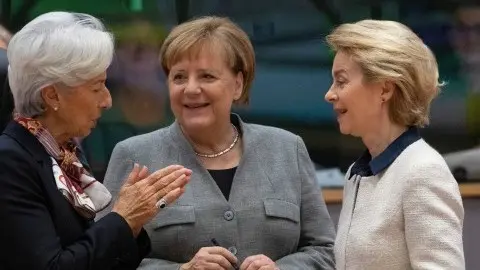Austria: Modest, but stable
Austria’s economy lost momentum during the course of 2019 given the challenging global environment. With domestic consumption and construction serving as growth drivers, we expect the economy to remain on a solid but slower growth path ahead
Strong growth years have come to an end
The strong growth years which the Austrian economy experienced between 2016 and 2018 have come to an end thanks to the international economic slowdown,
After strong first-quarter GDP growth of 0.5%, the Austrian economy lost momentum during the course of 2019 as growth slowed to 0.1% in Q2 and Q3.
Robust domestic consumption, employment, wage and salary growth, as well as the construction sector, have been growth drivers. Also investment started off the year with lots of momentum but has gradually slowed down over the course of the year. Thanks to Austria’s diversified economic sector and trade structure, global headwinds have been less severe than in other European countries.
Nevertheless, with the slowdown in the global economy and particularly the German economy, recent GDP growth figures show that the Austrian economy could not remain an island of indefinite growth. Overall, the economy is likely to have grown by 1.6% in 2019 compared to the previous year; which is still faster than many other eurozone economies.
Politicians have been in a generous mood
Although the government consisting of the Austrian People’s Party (ÖVP) and the Freedom Party (FPÖ) parted ways in May 2019 due to a political scandal, a number of legislative resolutions, including first parts of the ÖVP/FPÖ’s planned tax reform, pension adjustments and a digital tax were passed by the former and by the transitional government, therefore private consumption should remain strong in the next years.
The total volume of the tax reform package is estimated to cost €2.8 bn, while revenues of €0.8 bn are expected. These expenses had been already foreseen under the former government, while expenses for the pension adjustment, however, will cost an additional amount of €1.8 bn and will likely be a drag on the Maastricht balance. Also, the economic slowdown is likely to ultimately affect the fiscal room for manoeuvring for future governments.
Coalition talks ongoing
Currently, coalition talks between the ÖVP and the Green party on forming a new government coalition are ongoing and could last until Christmas or even into the new year. The Green party did not make it into parliament in the 2017 election but made a stunning comeback in the 2019 election securing 13.9% of votes.
Aside from the Green party, coalition options are limited for the ÖVP – the FPÖ has excluded itself from coalition talks, a coalition with the liberal NEOS is not possible from a mathematical point of view, while the ÖVP and the Social Democrats are extremely different in terms of party programmes – there are still major differences between the ÖVP and the Green party in terms of climate protection in association with a CO2 minimum price, or regarding migration and asylum.
If coalition talks prove to be successful, expect more climate-focused investments although any room for manoeuvring will be limited.
Economic growth to remain modest
Seeing that the global environment will remain challenging also in 2020, economic growth is expected to remain modest but should regain some momentum in 2021.
The Austrian economy in a nutshell (%YoY)
This publication has been prepared by ING solely for information purposes irrespective of a particular user's means, financial situation or investment objectives. The information does not constitute investment recommendation, and nor is it investment, legal or tax advice or an offer or solicitation to purchase or sell any financial instrument. Read more
Download
Download article
16 December 2019
ING’s Eurozone Quarterly: Is this recovery for real? This bundle contains 13 Articles